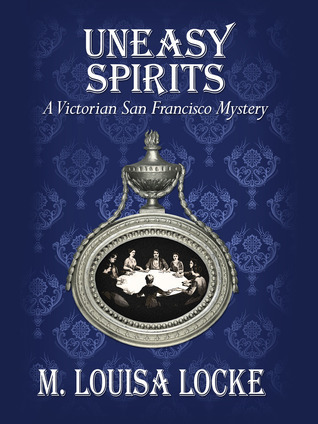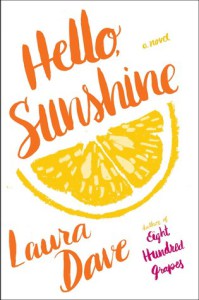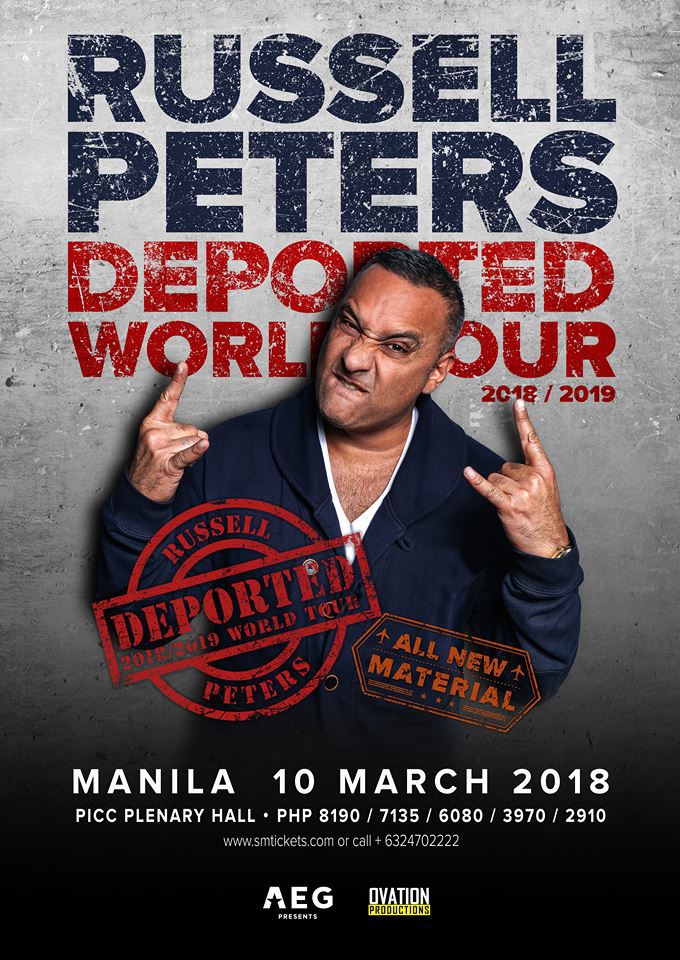Pen Friends ~ Meet Aimee Salter, author of A Dark Touch & Every Ugly Word, and 2017 PitchWars Mentor, who is here to share all kinds of writing gems with us.
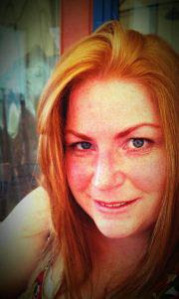
Hi Aimee! Thanks for joining us. First, please tell us a bit of who are you and how long have you have been writing?
Hi there. Thank you for having me!
I’m Aimee L. Salter. I’m an American who grew up in New Zealand, married a kiwi, have a kiwi son, and am now back in Oregon permanently.
I’ve always dabbled with writing and have loved it since I was in elementary school. I had a couple false starts on books earlier in life, but the first manuscript I ever completed with an eye to publication was in 2009, when I was 33. I got my first publishing contract in 2014 when I was 38.
(Pro-tip: If you love writing, start writing and don’t stop. Don’t let those voices around you tell you it’s unrealistic, or you’ll never succeed. Just keep writing, and keep trying to get published until it happens.)
SP: So you have two books out with Alloy Entertainment. Dark Touch and Every Ugly Word. Each have strong themes. Where did you get your inspiration? 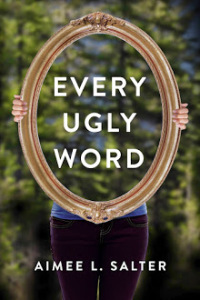
Every Ugly Word was inspired by my own middle and high school experience. The original manuscript didn’t include the non-linear timeline with the doctor. It just told the story of a girl who was in love with her best friend. And oh, by the way, she got bullied. I honestly never thought about it as an “issue book” about bullying, because that was just my school experience. It was a natural extension of writing what I knew. But when I got the contract offer from Alloy, my editor told me that that’s what made the story fresh and authentic. That we needed to hit that theme hard, because that was what readers were connecting with.
Tully (pronounced TUH-lee) the protagonist of Dark Touch was a conglomeration of my own experiences being close to addicts (specifically alcoholics), and the abuse and exploitation that friends of mine experienced as teenagers. I had a dear friend from high school who kind of “consulted” for me. Tully’s story isn’t her story, but they have some intersections, if you know what I mean. Her love interest, Chris, was loosely based on my father and cousin. Trust me, I know how creepy that sounds. I don’t mean it that way.
I was very blessed to grow up with some really healthy, strong male role-models in my family. I got my aunts and uncles to tell me stories about my dad when he was a teenager, and my mother’s always talked about what he was like in his early twenties. He was a good guy, but also very strong and capable.
I wanted to write a love interest whose personality didn’t reflect my father, but his character traits did, if that makes sense. So Chris doesn’t talk or share interests with my father, but they have similar integrity, strength, and self-confidence.
SP: How was writing your first book different from the second? Did you see areas of improvement? Was it just as hard or harder?
The second book was a lot harder, for a variety of reasons:
First, I’d written and rewritten what would become Every Ugly Word for three years before it was published by Alloy (I self-published a version of it, which was called Breakable, in 2013, but it never broke out. How my editor found it to read it and offer me acquisition is beyond me. But I digress.) Because of the time I’d spent on it, and how closely it reflected my own experience, by the time we got to editing, I knew the characters inside and out, and had spent years refining the story and prose. Dark Touch on the other hand was written in two bites—the first just a couple weeks long in which I wrote the first nine chapters or so, then had them read by my friend. The second timeframe was about four months over which I finished the draft, then revised twice before sending it to my editor. So I sat with that book for less than six months before I reached the editing phase. It was much harder, and I’m not confident about it to this day. That said, people who’ve lived with addicts really connect with it, so it’s serving the purpose I wanted for it, which was to make those people feel known.
The actually writing of Dark Touch was much harder as well. I learned a ton earlier in the year going through the editing process of Every Ugly Word. I was trying to assimilate everything I’d learned into a new story, when those skills and techniques hadn’t become second nature. It made the technical writing very stop-start and full of self-doubt. It was much, much harder to get words on the page. I’m normally a very fast writer (when I’ve done my prep I can churn out about 2,500 words per hour, for 3-4 hours.) But that book was second-hardest I’ve ever written. Second only to the one I just completed last week, and for similar reasons: I’d taken a step forward in my understanding of the craft and was having trouble working it into my writing in a natural way.
With all of that said, my actual writing–it’s lyricism and insight–is better in Dark Touch, I believe. But you’d have to ask my readers if they agree.
SP: What has your publishing journey been like with Alloy Entertainment? Is it fun to work with an independent publisher? What are some of the things you have learned from publishing? (*Sorry that is 4 questions!) Will you seek agent representation in the future?
I’ve actually had two agents before. The book that became Every Ugly Word was represented. But after a round of submission and some revision suggestions, my agent became a bestselling author herself and left that side of the industry. I chose to self-publish after that (which ultimately led to the contract with Alloy) because at that stage I was so tired of having no control over my own success. However, traditional publishing has always been my goal, and Alloy fulfilled that role. Creatively they’re amazing. My editor is so experienced (she’d been doing this for 15-16 years by the time we worked together.) They made my book so much better, and their design elements are fantastic too. I’m hugely grateful to them for that.
Alloy isn’t an independent publisher, they’re a mid-sized publisher with a long and very successful history. What’s unique about them is that they were initially established as a book-packager (where the concept for any book is theirs, and they hire a writer to develop it for them). They came to traditional publishing later. I was acquired on their traditional side, for a new imprint they were establishing in 2014.
Because Alloy are known best for their packaged titles, there’s a lot of misinformation about their publishing model. Some people thought the book wasn’t actually mine, which was challenging when it happened. But when people understood it was a straight, traditional contract (with an advance and royalty structure) things happened smoothly.
What remains unique about my contract with them is that Alloy are much, much more focused on other publishers on turning their book assets into television or movie productions. While that hasn’t happened for mine, there’s always the chance it will in the future. And that would be amazing.
I took legal advice on the contract(s) with Alloy because I didn’t have an agent. But I will always be in the market for one. In fact, I’m querying right now. It’s a little different when you’re published. I suspect my hitrate for requests is a lot higher than most debut authors. But we’ll wait and see if that turns into any offers.
SP: What are some books that have inspired you along the way/as a child?
As a teenager I lived mostly in New Zealand, so had access to a lot of British, Australian, and New Zealand works. There was a series that came out when I was in high school about a teenage swimmer who was working towards the Olympics. The first book was simply named Alex. It was the first book I read that just told the story of a teenage girl’s life—including great triumph and tragedy. I connected with it so hard, despite never having athletic aspirations. It’s always stuck with me, and I think of it often because of the experience it gave me as a reader. I want to replicate that in my books.
I read widely, and mostly adult books from the age of twelve. Young Adult fiction in my young adult years was either non-existent, or poorly executed. I read a lot of adult books that featured teens (like Flowers in the Attic, which as a mother, now makes me shudder to think of the age I was absorbing those incest stories.) Back then I loved the Sweet Valley High books because they talked about the kind of life I was actually living, though I hate their underlying messages now. And that author wrote another series called Caitlyn which had much better themes.
When the young adult fiction market exploded around 2008-2009, I was ecstatic. I’d always loved those stories, and I devoured them. I remain an unapologetic reader of young adult fiction across a lot of genres, but contemporary romance is always my favorite as a reader. (As a writer, I will always bring in at least a single element of the fantastic or impossible.)
SP: You are a PitchWars Mentor this year, how has that experience been so far? Did you ever submit to PW in the past?
Pitch Wars is, frankly, amazing. The community that springs up around that competition every single year is mind-boggling, not only in its size, but in the culture of it. There’s so much support and desire to help. And as a mentor I can attest to the fact that that culture extends to behind-the-scenes. The mentors not only stress over being the best help to the hopefuls, but they offer a lot of support, advice, and empathy to each other as well.
I entered Pitch Wars in 2016—and didn’t get in. So if anything proves to you that the mentors really are looking for undiscovered talent that’s almost there, that should be a strong argument. And while it was disappointing last year, now as a mentor myself, I get it. I had three hopefuls apply to me whose writing is easily as strong as mine, if not stronger. They’re ready. They will get there. I know it. They don’t need me (though I’m sure they would have appreciated the hand up.) I found someone who’s story lit up all my reader senses, and whose manuscript I knew I could help them improve.
I am so, so excited to work with Natalie. It’s a happy accident that we have very similar working styles, so I’m able to help her process, too. Because I can tell her how I do things, and mostly it works for her. We joke about being destined for each other. It was definitely a divine appointment. I suspect I may be spoiled rotten as far as mentoring relationships go.
SP: Both Dark Touch and Every Ugly Word are in First Person POV, whats your favorite part of writing in 1st person POV? Do you think all of your books will be? What is one tip for others writing in 1st person?
One of the books I’ve been writing on and off since 2009 has the protagonist in first person, and the secondary characters in third. The intention was to bring the reader closer to her than to anyone else in the story. But with that said, it was something that started subconsciously, then I continued it intentionally.
I’ve never sat down to start a story and gone “Hmmmm, I wonder if I should write this in first or third?” I just start writing and they come out that way.
I love working in first person because it allows you, as the author, to really put the reader inside the protagonist’s skin. That makes for the best emotional read, I think.
The challenge of it is that you can’t show the reader things for certain that are outside the POV character’s head. So you have to actively avoid making assumptions and presenting them as fact, because that doesn’t ring true.
The book I’m querying right now is in first person, present tense, which is even closer. It has its challenges, but I love that too, because it feels very active (when I get the writing right.)
As far as tips, well, the above “Don’t have your character tell the reader what other people are thinking and present it as fact.” That doesn’t work. In our real lives we do make assumptions about people’s body language and motivations. That’s authentic. But it has to be presented in fiction as the character’s POV, not as “Carl is thinking X” because you can’t know that. (Side note: That also dilutes tension, because if you present it as fact, it can’t be wrong, so subliminally there’s no question there and the reader can’t wonder—which is what creates tension. Tension is an author’s bread-and-butter.)
But probably even more than that, I’d say study the craft techniques of using sensory detail, and “motivating stimulus and reaction.” In first person you have a unique opportunity to present the reader with the experience of the protagonist. (I.e. You don’t say “I feel cold.” You say “My skin pebbles with the chill in the air.”) If you do it right, it makes the reader fall deep, deep into the story and feel everything alongside the protagonist. If you do it wrong, it becomes the kind of book people say “I just couldn’t get into it.”
In novice writing, it’s the primary flaw that I see (and I recognize it because I used to do it.) Telling the reader what the character feels, both physically and emotionally, rather than showing it. If you can get that technique down, you’ll be an effective, and likely successful writer.
SP: Do you have writing ups and downs? (You’d be superwoman if you didn’t!) How do you celebrate and how do you combat them? (Optional!)
Hoooooo boy, do I ever. We all do. And I’m friends with some incredibly successful, name-brand authors. And they all suffer from self-doubt, book-doubt, and writing nerves or block.
Personally, my approach to combating self-doubt is twofold: I use self-discipline (“I’m not going to let this derail me. I can always revise it and make it better. Just keep going.”) and some reason too. The reality is, we’re all too close to our own writing to see it clearly. If we’re willing to let other people find the flaws, and then fix them, our books will consistently get better. The trick is to have the humility to accept that your writing isn’t going to be good the first time (or even the second/third/sixteenth time) and that’s okay. It’s why we have critique partners. It’s why we get edited. But if you’re willing to listen and learn and keep working, your book will just always get better, until one day it is something you can be proud of.
Sitting and wallowing in self pity doesn’t help your book—or yourself. I try to avoid it as much as possible. But when I’m having a really bad day, I go to my writer friends and tell them I’m having that kind of day. They all get it. They don’t try to fix me, or my book. They just walk through it with me, offer encouragement, and advice when I ask for it.
It’s so, so crucial to have supportive writer friends, because people who aren’t writers can love us to the moon and support us to the ends of the earth, but they don’t understand the process, the industry, or the product. So their advice is usually either not helpful, or downright insensitive. When you need bolstering, go to other writers.
As far as celebrating, I do it with relaxation. I usually get my family to go out for a meal so I don’t have to cook. I’ll watch Netflix for an afternoon instead of working. Or I’ll write on something I’m doing for fun, rather than for a deadline. Whatever I feel like. I get self-indulgent for a few hours and it’s great.
SP: What’s your go-to? Fav drink while writing? Snack? Distractions? Silly habit? (optional!)
First thing in the morning it has to be coffee (with hazelnut and French vanilla.) After that it’s whatever tickles my fancy.
I’m rather partial to crunchy cheese or potato snacks, so I’ve had to stop having them in my house, otherwise I’ll just sit there all day munching on them.
I’ve started using scented candles and doing my nails as my indulgences, rather than food. Food and I have a complicated relationship that I’m learning to balance a lot better now that I’m in my forties.
I also indulge by buying myself music for my playlists. I almost always have music on while I’m writing. Right now I’m on a Thirty Seconds to Mars kick that just won’t stop.
I also go into my closed Facebook writer groups and do silly meme games, or GIF wars, or whatever. We have a ton of fun. It’s my favorite distraction—especially if I’m having a down day because of rejections, or whatever.
SP: What’s next? Are you working on anything new right now?
I just finished a book I call Bound that I’m currently querying:
Nine months sober and determined to stay that way, seventeen-year-old Kate Wilson has just white-knuckled her way through her first day at her new school when she steps in to help a classmate she thinks is drug-addled. But Kate’s altruism puts her in the path of a new temptation—the wickedly charismatic Aiden. Not a drug dealer as she suspected, Aiden is a Shade, a modern-day sorcerer. He offers Kate a spell he calls The Binding and claims he can give her all the escape of her favorite high, yet bring her back down before curfew, with no lasting effects or consequences.
As Kate falls deep into the grip of the Binding—and Aiden himself—her life begins to unravel to the thrall of addiction for the second time. Their uptight classmate, Chase, clashes with Aiden at every turn, determined to convince Kate to walk away. But when Kate’s parent’s separate, due at least in part to the stress of dealing with Kate’s addiction, Aiden swears if Kate joins the Shades herself, the binding will get even better—and Kate will gain the ability to repair her family with the power.
But during the initiation rite a woman is killed, and Kate is trapped by a spell that will kill her unless she betrays the people she loves most. Desperate—and now battling withdrawal from the binding—Kate turns to Chase. A former Shade initiate, he’s the only person to have left them and lived. But the initiation spell isn’t the only battle they face. Because Aiden’s feelings for Kate are real—and he’s already proven he’ll fight to the death to take what he wants.
While that’s out doing the rounds, I’m working on something that’s a bit of a departure and I’ll probably self-publish later this year or early next. It’s a contemporary romance with some pretty heavy themes. But it errs towards New Adult, so it’s not in my author brand. Hence the self-publishing. That one’s too early to blurb, but it’s about a hot rocker and his hometown girlfriend and a whole lot of hell they both have to live through.
SP: Where can we learn more about you, your books?
As far as me, people can read my blog: www.aimeelsalter.com (that would be mostly of interest to writers. There’s a lot of How To and industry insight on there.)
Readers can join me on Facebook in my reader group, or keep an eye on my author page, though I’ve been so busy this summer, there’s not a lot on there at the moment. But one of my goals this fall is to get engaged on those again. I do take personal messages on my author page, so if people want to contact me privately they do can do there:
Reader Group: https://www.facebook.com/groups/MyYATribe/
Author Facebook Page: https://www.facebook.com/AimeeLSalter/
Or follow me on Twitter where I’m @AimeeLSalter.
SP: Thanks for joining us, Aimee! Best of Luck!
Thank you so much for having me, Nova! I really appreciate it. And I hope you all have a fantastic end to 2017!
 Nova, signing off.
Nova, signing off.
